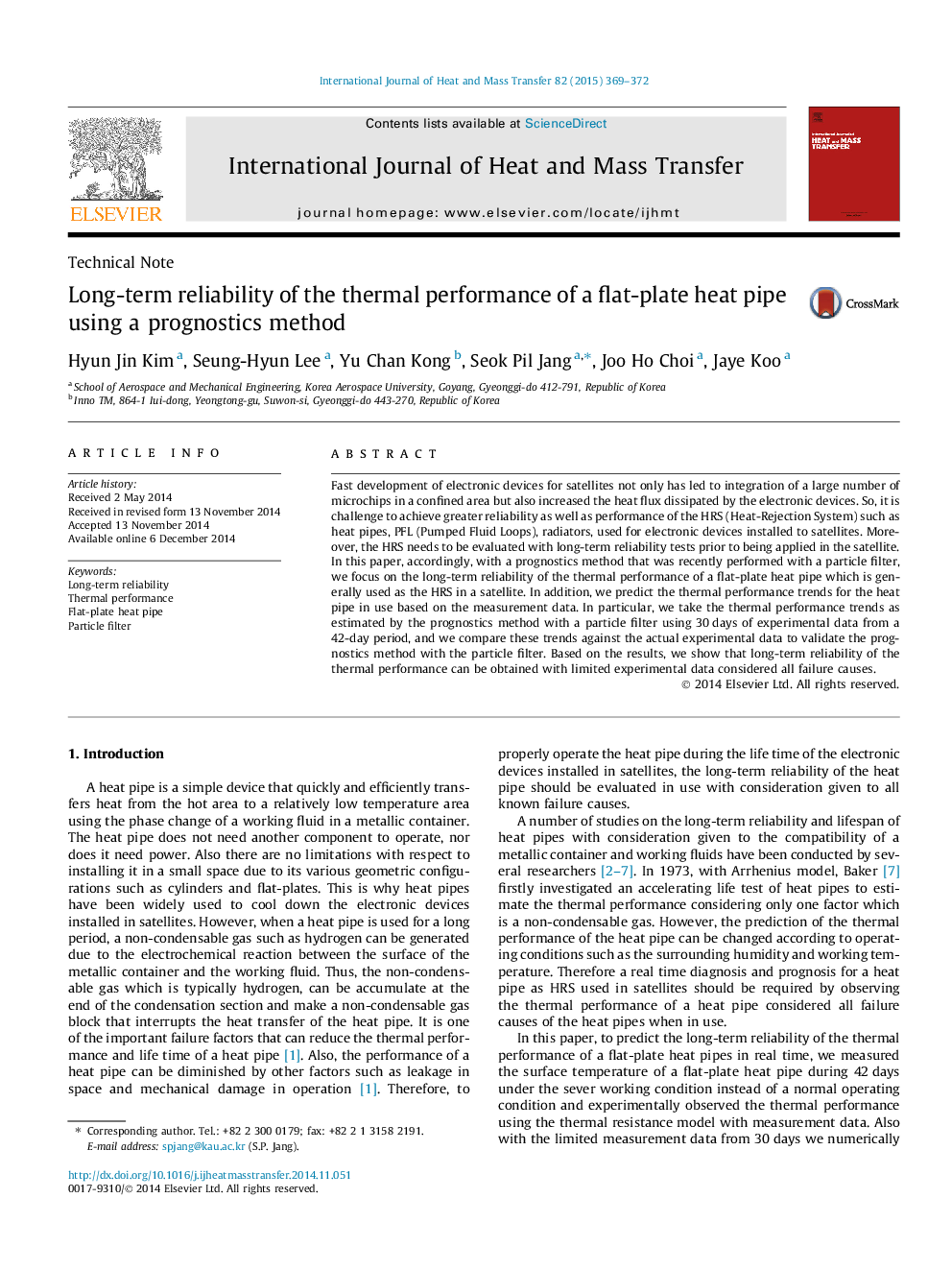| Article ID | Journal | Published Year | Pages | File Type |
|---|---|---|---|---|
| 657377 | International Journal of Heat and Mass Transfer | 2015 | 4 Pages |
Abstract
Fast development of electronic devices for satellites not only has led to integration of a large number of microchips in a confined area but also increased the heat flux dissipated by the electronic devices. So, it is challenge to achieve greater reliability as well as performance of the HRS (Heat-Rejection System) such as heat pipes, PFL (Pumped Fluid Loops), radiators, used for electronic devices installed to satellites. Moreover, the HRS needs to be evaluated with long-term reliability tests prior to being applied in the satellite. In this paper, accordingly, with a prognostics method that was recently performed with a particle filter, we focus on the long-term reliability of the thermal performance of a flat-plate heat pipe which is generally used as the HRS in a satellite. In addition, we predict the thermal performance trends for the heat pipe in use based on the measurement data. In particular, we take the thermal performance trends as estimated by the prognostics method with a particle filter using 30Â days of experimental data from a 42-day period, and we compare these trends against the actual experimental data to validate the prognostics method with the particle filter. Based on the results, we show that long-term reliability of the thermal performance can be obtained with limited experimental data considered all failure causes.
Related Topics
Physical Sciences and Engineering
Chemical Engineering
Fluid Flow and Transfer Processes
Authors
Hyun Jin Kim, Seung-Hyun Lee, Yu Chan Kong, Seok Pil Jang, Joo Ho Choi, Jaye Koo,
